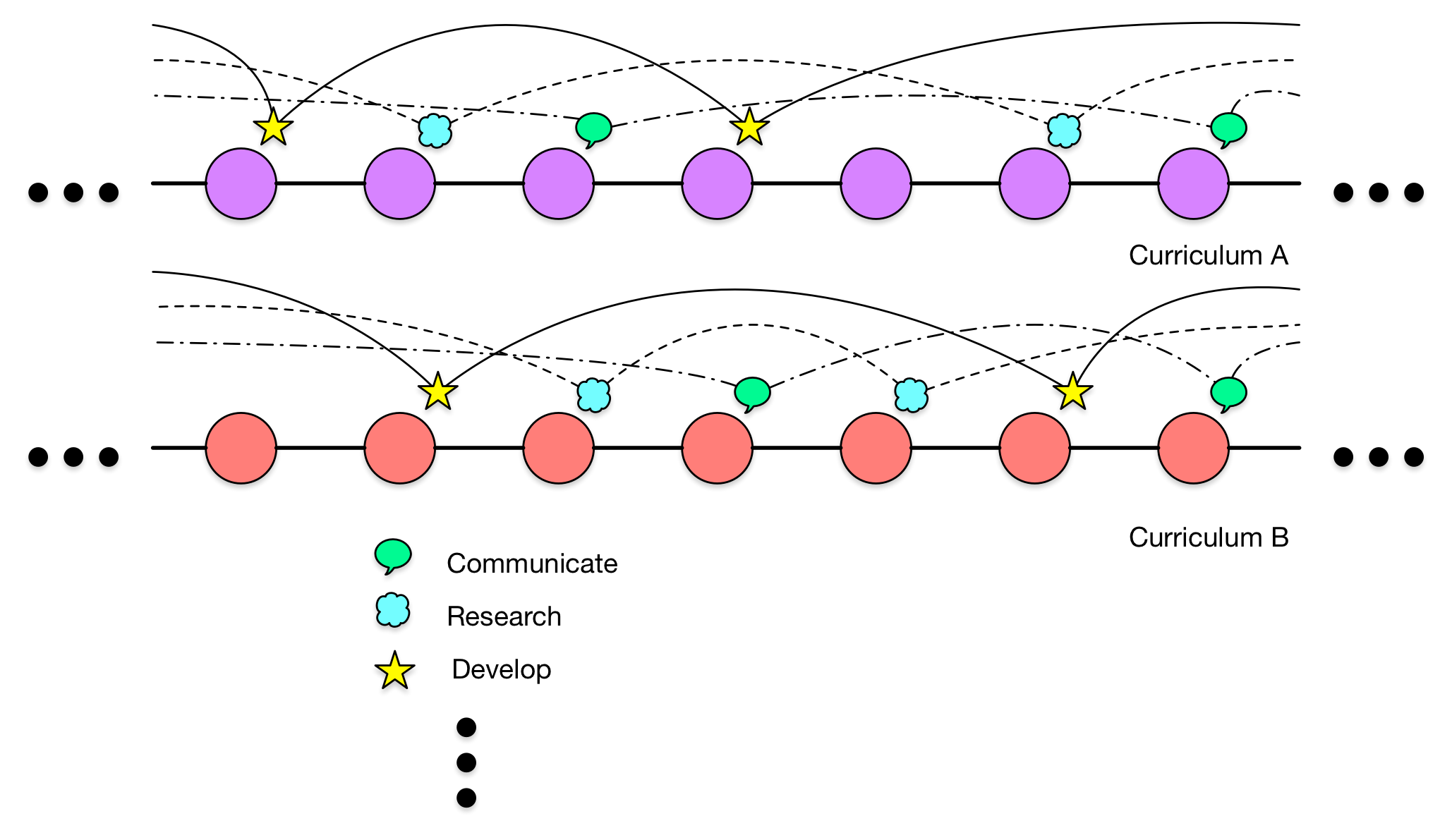In a previous post, I talked about the layers around learning design. One of the layers that’s increasingly interesting to me is the notion of the success skills, or meta-skills that are involved. For example, the SCANS competencies are a decent suite of skills that recognize the general skills for success that cross different disciplines.
However, you really can’t focus on such skills in isolation. Like most meta-skills, they need to be applied in a domain. As a consequence, they really need to be worked on while developing some other skills. That is, when you’re developing a curriculum, you have opportunities to require using those skills, but they need to be explicitly included and better yet, assessed.
In the field of educational software, there have been many ‘games’ that claimed “develops problem-solving skills”. This wasn’t accurate, as most of them required problem-solving skills, but there was no development. Development would require assessing performance and providing feedback. And that’s what we want to do to develop these skills.
 So my suggestion is to layer on these requirements across the curriculum, and assess them separately. The skills, like organizing, problem-solving, communicating, researching, etc, are naturally part of an activity-based curriculum, but need to be deliberately inserted at reasonable rates and tracked. It’s not hard, you choose this assignment (task/activity/practice) to include a presentation, that one to require research, another to require a design task, etc. And you assess them across assignments.
So my suggestion is to layer on these requirements across the curriculum, and assess them separately. The skills, like organizing, problem-solving, communicating, researching, etc, are naturally part of an activity-based curriculum, but need to be deliberately inserted at reasonable rates and tracked. It’s not hard, you choose this assignment (task/activity/practice) to include a presentation, that one to require research, another to require a design task, etc. And you assess them across assignments.
So, you look at their repeated performance on each skill at each time they’re inserted. You can provide support and gradually remove it (as you do for other skill-development practice).
The point is to not only develop the learner’s ability to acquire the curricular skills, but also to acquire the meta-skills. For instance, if you are helping people acquire job skills, you are also developing their ability to hold the job, and self-improve over time.
Think of it this way. People acquire a job by their ability to do X, but they will need to know how to work in a job context regardless of whether it’s X, Y, or Z. Also, X will change to X+ and X++ over time, and the skills to keep up to date and move up require the meta-skills.
I think of this as one of the pillars of a successful education practice; develop the learners not only in the domain, but as learners. Developing them as people, not only as practitioners of a competency. I think this is a practical approach, what do you think?
Leave a Reply